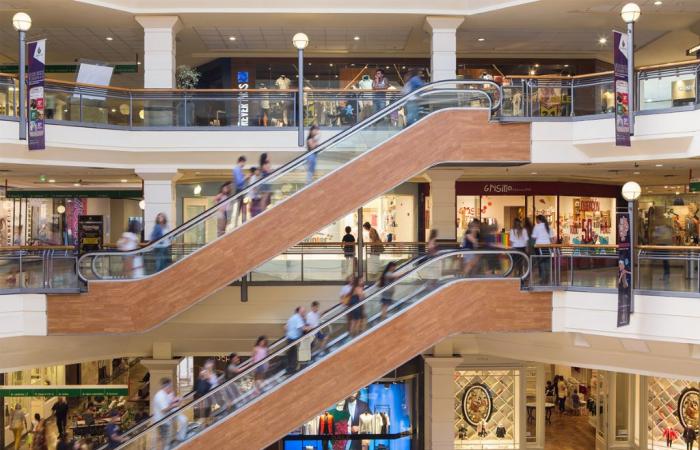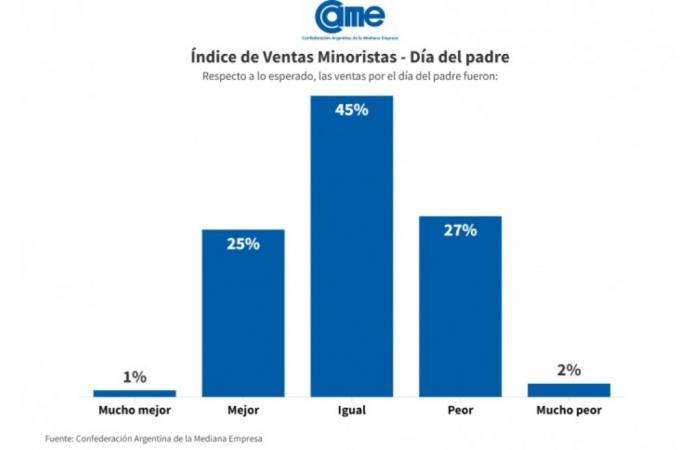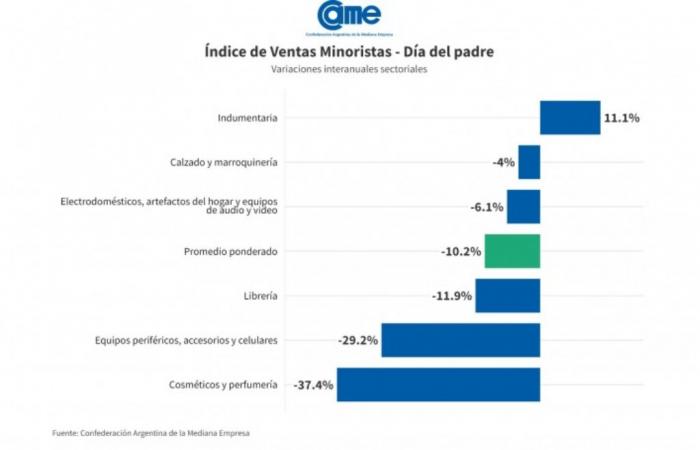In 2024, Father’s Day sales in Argentina saw a notable decline of 10.2% compared to the previous year, reflecting the economic challenges the country continues to face. But the crisis not only brought a drop in sales, but also new trends, with that of collective purchases.
According to a report carried out by the Argentine Confederation of Medium Enterprises (CAME), the decline in sales is observed despite the numerous promotional strategies implemented by merchants to encourage purchases in an economy marked by an annual inflation of 276.4 %. The CAME study reveals that the average purchase ticket reached 31,574 pesos, a figure that doubles that of the previous year, but which implies a decline if annual inflation is applied.
The report also highlighted a change in consumer behavior, with a notable increase in collective purchases. This trend, in which several members of a family come together to make a joint gift, reflects an effort to optimize expenses and obtain the maximum possible value from each purchase, a strategy directly related to the current economic situation.
“There were few people on the streets, and several collective purchases of footwear among several family members, who came together to purchase a good product,” said a merchant from San Miguel de Tucumán.
In detail, the clothing sector was the only one that showed positive performance, with an 11.1% increase in sales. This growth is attributed to a combination of factors such as a low comparison base from the prior year and effective marketing strategies that included discounts and financing promotions. Clothing stores managed to attract consumers by keeping prices below the inflationary average, suggesting an adaptation of the sector to the prevailing economic conditions.
In contrast, the cosmetics and perfumery sector experienced a drop of 37.4%, the most severe since the pandemic. Merchants in the sector chose to manage limited inventories due to the expectation of low demand, concentrating on offering second-brand products and significant discounts. However, these measures failed to reverse the negative trend, evidencing a decrease in consumer interest in these products during the celebration.


For retail trade, the coincidence of the celebration with a long weekend was not favorable. 77% of the businesses consulted expressed that, although they hope that this date will help improve sales for the month, it is likely that it will not fully compensate for the general decline compared to the previous year. This sentiment was shared by a wide range of merchants, who adjusted their expectations and sales strategies accordingly.
From a geographical point of view, the drop in sales was evenly distributed throughout the country, with 157 businesses participating in the CAME study.








